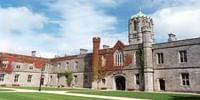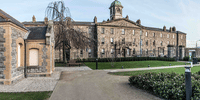It has a broad-based curriculum with strong practical content, including a five-month work placement. It has an excellent record for graduate employment.
The first two years of the course will develop your scientific knowledge, especially in mathematics, physics and the fundamental electrical signal concepts.
The final two years concentrate on applied engineering topics such as:
- the generation and distribution of electricity;
- the development of renewable energy systems;
- industrial automation and control;
- telecommunications;
- optoelectronics and photonics;
- medical electronic systems;
- consumer electronics;
- the design and fabrication of microelectronic integrated circuits;
In your final year, a wide range of module options allows you to tailor your studies to suit your particular interests and career ambitions.
Written exams will take place before Christmas and in May. Not all modules will have formal examinations. Many modules use other types of assessment including in-class tests, laboratory reports, assignments and associated reports, projects and associated reports and oral and poster presentations. Most of the individual modules allocate 20-30% of the available marks to these continuous assessments.
The final-year project module, which has a weighting equivalent to three standard modules, is based on continuous assessment and you have to prepare project logbooks, a large project report, a seminar and an open-day presentation.
Following the third-year placement, you will also prepare a report and present a seminar.











